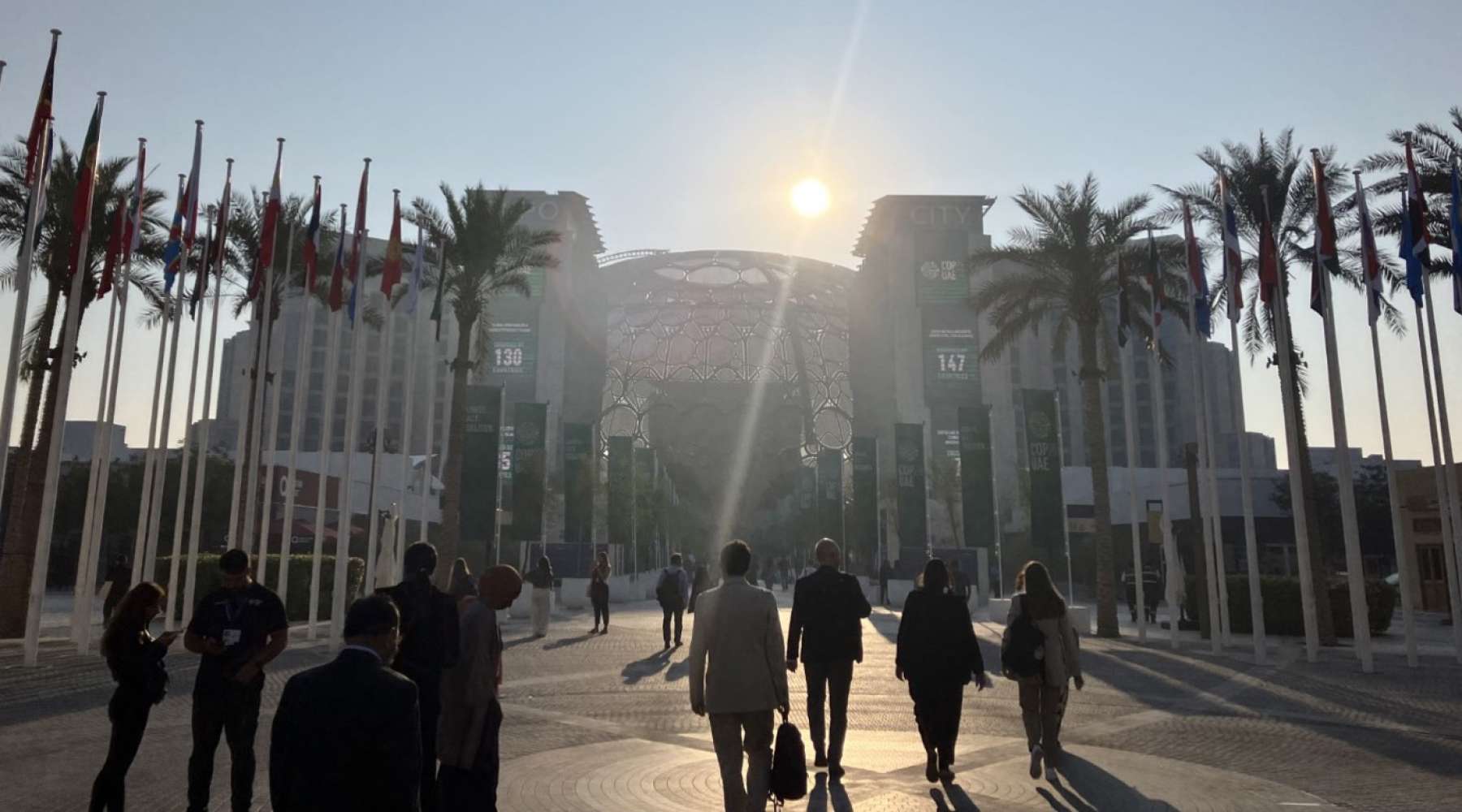
What was your biggest takeaway from attending COP as a Dartmouth-Tuck delegate? What was the experience like?
The general sentiment shared by conference speakers was a sense of urgency to better translate climate commitments into tangible progress. Since 2021, the number of companies with net-zero commitments has more than doubled. However, according to the latest IPCC report, the world is not on track to prevent catastrophic effects of climate change. I listened to the Systems Change Lab share their State of Climate Action report which broke down why: nearly every indicator of climate progress is off track, except for progress on electric vehicles.
While I was excited to be surrounded by individuals so passionate about climate action, these types of findings also painted an overwhelming picture. A couple of speakers even remarked that it was a ‘Tale of Two COPs’ (e.g., the best of times, the worst of times). Though it was inspiring to see the largest-ever attendance at COP, the conclusion was that thus far, we are failing. Because of this, my biggest takeaway was an invigorated motivation to use my privileged position as a Tuck graduate to help expedite progress.
Throughout your time at Tuck, you’ve been focused on sustainable agriculture. What did it mean to you that one of the key successes from COP28 was the Declaration on Sustainable Agriculture, Resilient Food Systems and Climate Action? Did it influence how you will think about these topics going forward?
Despite food security being listed as a priority in the Paris Agreement, food systems have been notably absent from many national climate action plans to date. The signing of 134 parties to the Declaration on Sustainable Agriculture agreement helps address that. In parallel was the launch of the Alliance of Champions for Food Systems Transformation, which is a more ambitious alliance between Norway, Brazil, Sierra Leone, Rwanda, and Cambodia. And, in the private sector, we saw the Dairy Methane Action Alliance through which a handful of companies committed to publish and implement methane action plans by the end of 2024.
It’s important to celebrate these achievements but also recognize that there is still work to be done. Going forward, I am most interested in (i) how to support the rapid implementation of these action plans and (ii) how to leverage emerging innovation and technology to accelerate their adoption.
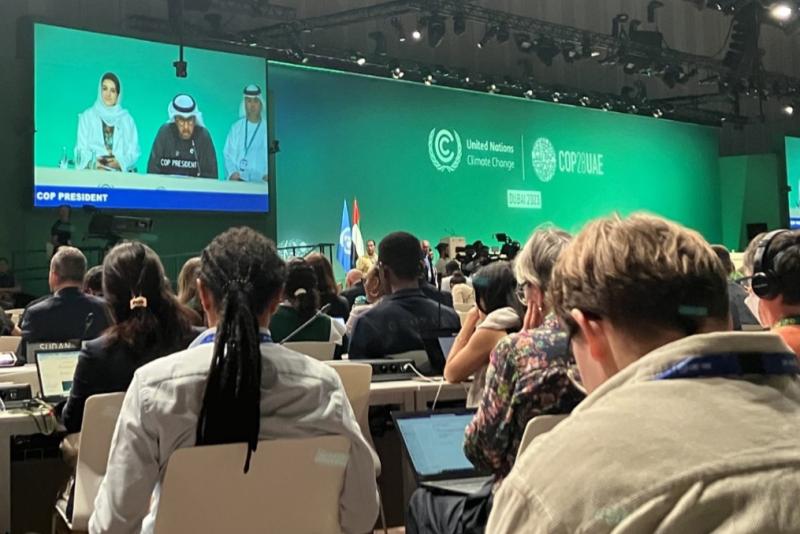
COP28 President, Dr. Sultan al-Jaber, providing an update on the state of the conference.
What advice do you have for prospective Tuck MBA and incoming Tuck MBA students who are interested in exploring sustainability, climate action, and agriculture?
Firstly, I encourage students to think of a Tuck MBA not only as two years of your career journey, but also of your life journey. Take advantage of living in the Upper Valley—it is a beautiful place. Visiting the Dartmouth Organic Farm or the Norwich Farmer’s Market are a couple of examples of light-touch ways to get outside, engage with the community, and learn more about these types of causes.
Academically and professionally, my advice is to come in with an 80/20 plan—know how you want to spend 80% of your time but also spare yourself bandwidth to seize opportunities that you don’t yet know exist. For example, attending a food sustainability conference in Boulder and supporting the launch of Dartmouth’s Greenshot Climate Solutions Accelerator were highlights of my time at Tuck that I didn’t plan for, but which I’m so glad I had the capacity to take advantage of. Everyone comes in with different goals and reasons for pursuing an MBA—know that it is okay to forge your own path and to stay true to your areas of passion. It is hard to fully appreciate until you’re on campus, but Tuck provides ample opportunities to students interested in exploring sustainability, climate action, and agriculture.
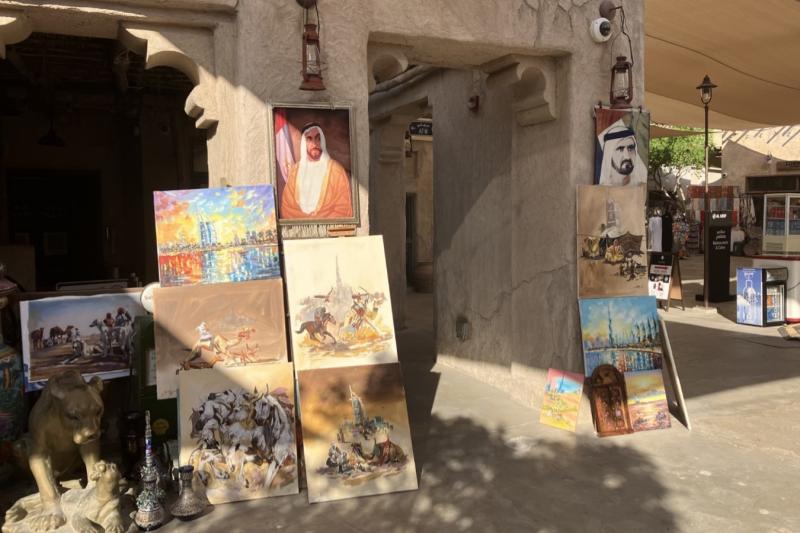
A storefront in Old Town Dubai.
Why do you feel Tuck was the right place to pursue your goals and interests?
The Tuck network is supportive and responsive. There are several recent alumni who have been generous with their time in helping me learn more about issues and industries I care about. Furthermore, the broader Dartmouth community has been a welcoming resource which I’ve been so happy to engage with. I have regularly forged relationships with medical, engineering, and undergraduate alumni with similar interests. Dartmouth views itself as one community, rather than a group of distinct schools, which I appreciate and hope to pay forward.
How will you use this hands-on experience at COP in your career after Tuck?
The conference served as a reminder that our world is interconnected in a few important ways:
Firstly, COP28 hosted the first ever ‘Health Day’ in the history of the conference. Though we tend to consider climate and health as two distinct issues, they are inextricably linked. While their contortion is daunting, addressing them holistically poses opportunities to generate meaningful co-benefits.
Secondly, though the UNFCCC is an intergovernmental organization, COP28 saw a stark increase in interest from the private sector. I hope that public-private collaboration is a trend that continues. COP28 provided a market signal for the transition away from fossil fuels; how quickly and to what extent we can achieve that will depend on our willingness to collaborate across governments, nonprofits, and the private sector to realize change.
As I continue my career beyond Tuck, I will be mindful that many of the challenges we seek to address do not have a single root cause or solution. I am so fortunate to have engaged with global perspectives at Tuck and now at COP28, which expanded my capacity to think creatively, collaboratively, and equitably. I’m excited about continuing to work with diverse teams that will challenge my way of thinking and push us toward a collectively brighter future.
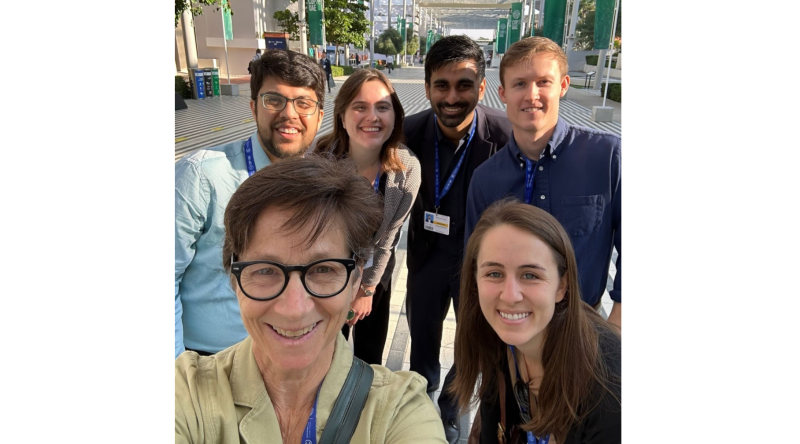
Tuck Delegates at COP28 in Dubai. (Back, from left to right) Gagan Makhija, Sarah Kilpatrick, Chirag Kataruka, Pierce Gibson (Front, from left to right) Professor Tracy Bach, Laura Betten
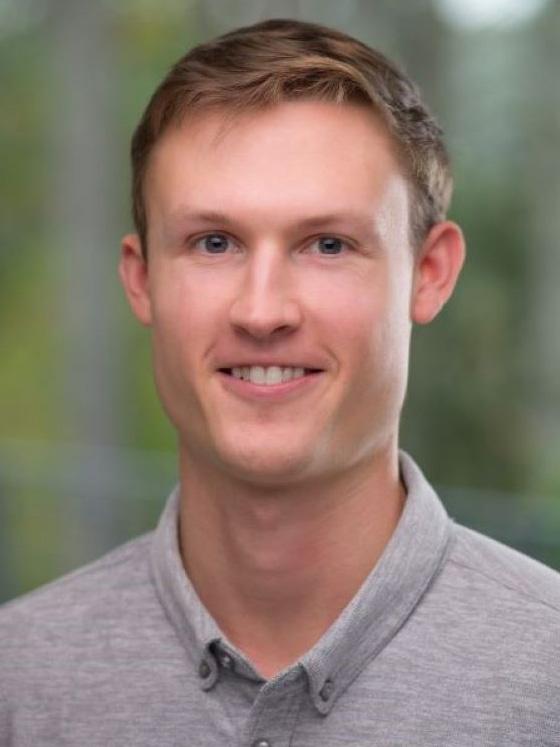
Pierce Gibson T’24 is passionate about the intersection of human health and climate, particularly within food systems. His background is in strategy and innovation consulting, as well as early-stage investing.